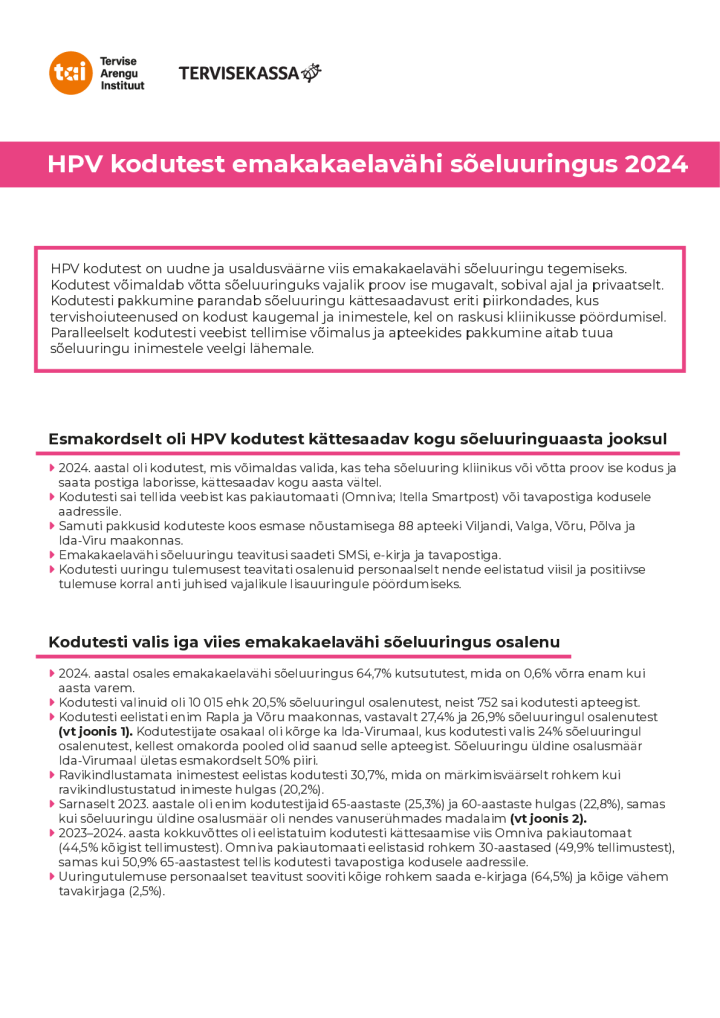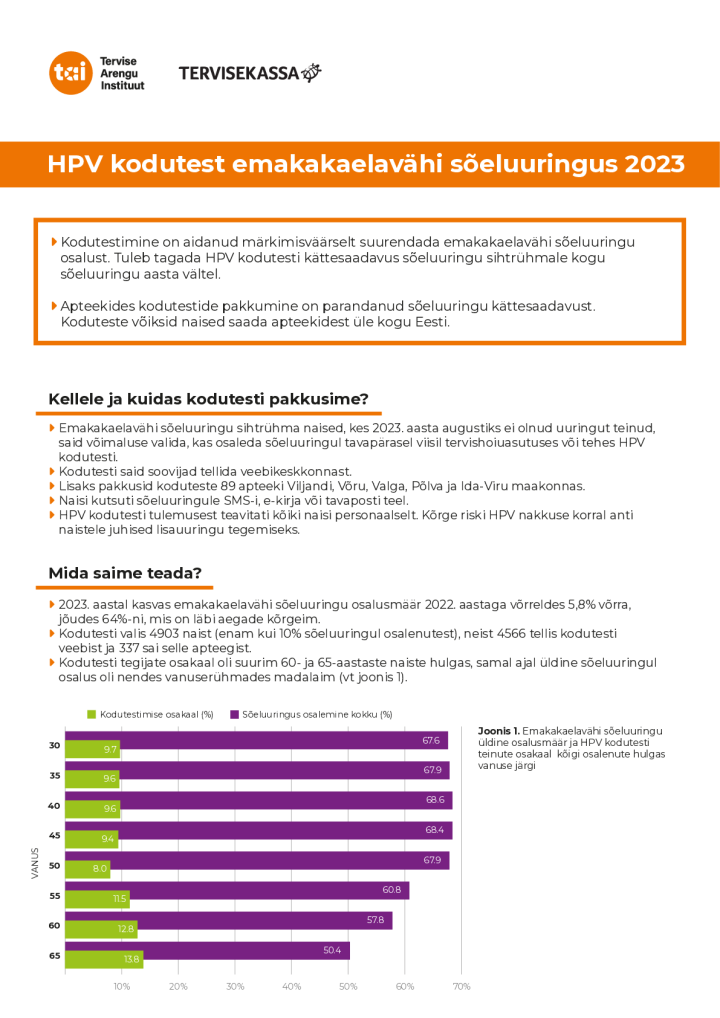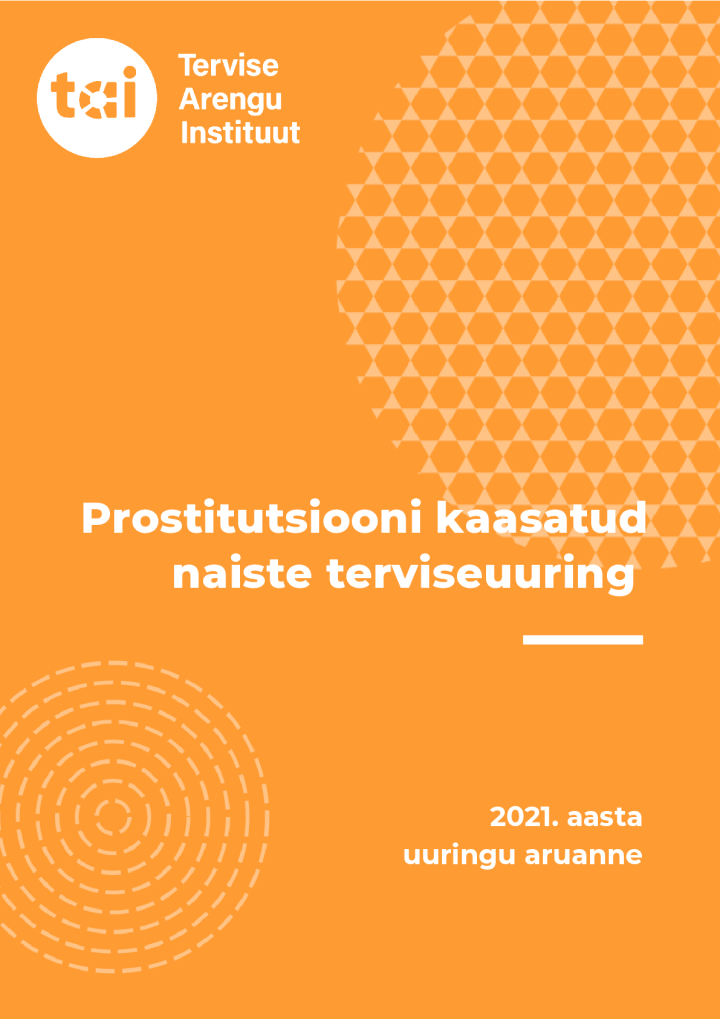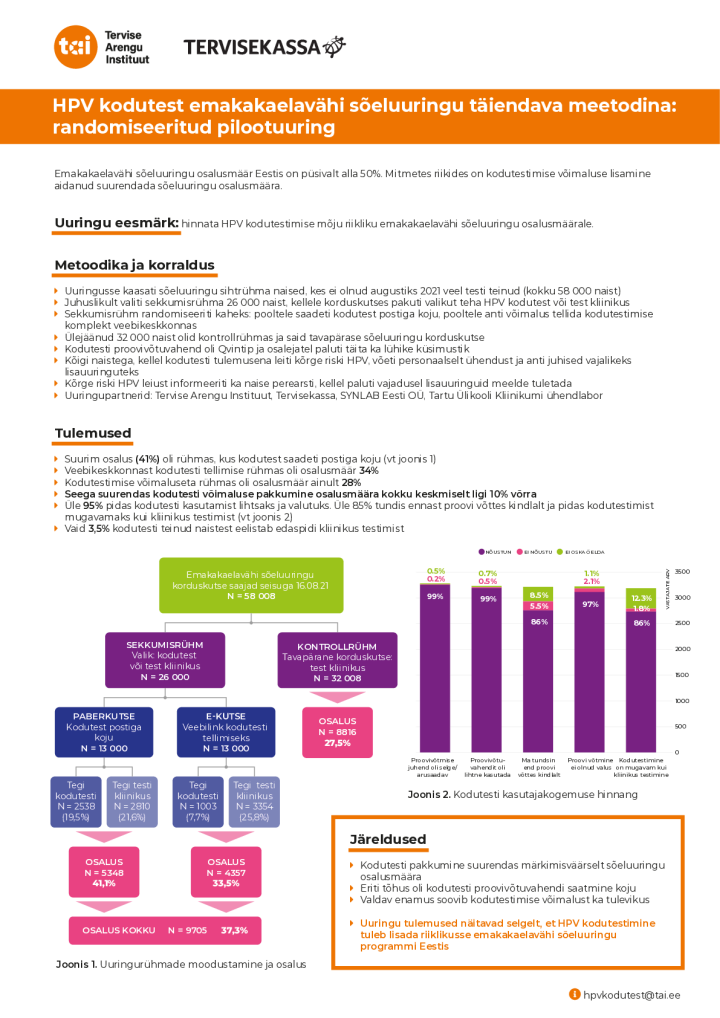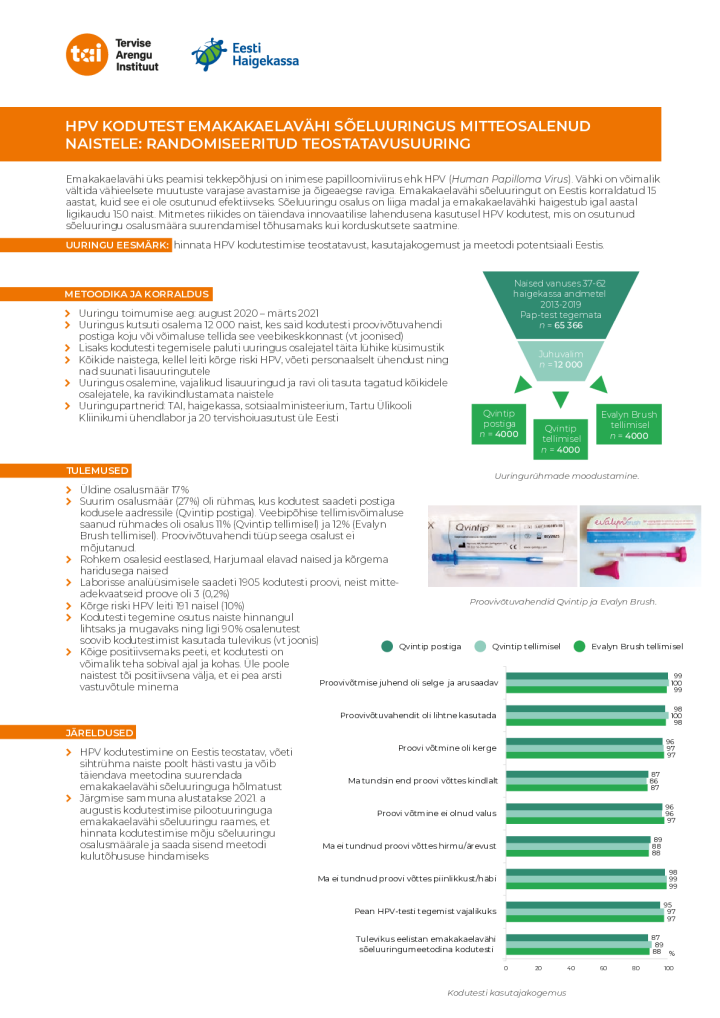Women's health research
Research covers cancer prevention and treatment, screening programmes, reproductive health, pregnancy and childbirth, issues related to miscarriage and termination of pregnancy, and the health of postmenopausal women.
Main studies
- Effect of COVID-19 on pregnancy outcomes – registry-based study (2022–2023)
The main objective of the study is to assess the impact of the COVID-19 pandemic on pregnancy outcomes in Estonia. For this purpose the outcomes of SARS-CoV-2 positive parturients are compared with others, and the results of those vaccinated against the infection with the unvaccinated ones, also taking into account other risk factors for pathological pregnancy outcomes and perinatal interventions.
- Implementation of HPV self-sampling in national cervical cancer screening programme
The aim of the project is to identify the possibilities for implementing HPV self-sampling, as a new innovative screening option in organized cervical cancer screening programme. HPV self-sampling allows women to collect the screening sample at a suitable time, and mail it to a laboratory for analysis.
- Evaluation of the quality of cervical cytology tests (Pap smears) and compliance with clinical follow-up after pathological findings in cervical cancer patients in Estonia (2020–2022) (ETAG grant MOBJD579)
The aim of the study is to evaluate the adequacy of taking cervical cytology tests, the quality of test results and the adherence of follow-ups to clinical guidelines after abnormal test results among cervical cancer patients ten years prior to the cancer diagnosis. Read more about the study in ETIS.
Estonian-Finnish cooperation projects
- Hormone replacement therapy in the postmenopausal period – benefits and risks (1998–2025)
The aim of the study is to identify the effect of hormone replacement therapy on health, quality of life and costs for the health care system. The methodological analysis of the study will provide insights for future epidemiological studies.
- Time trends of operative deliveries in Estonia and Finland
The aim of the study is to analyse the long-term time trends of caesarean section in Estonia, based on Robson's criteria, together with time trends of operative vaginal deliveries, and to compare them with the corresponding indicators in Finland. The study provides an opportunity for international comparison and enables to analyse in which subgroup is it possible to reduce the number of caesarean sections in the future.
